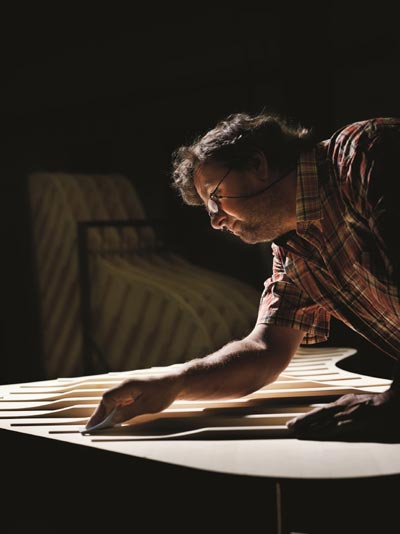Local pianos hit the right note
By Sun Yuanqing ( China Daily ) Updated: 2014-02-25 07:30:44
 |
|
A technician from the German piano maker C. Bechstein works on a piano. Provided to China Daily |
 |
| Lorde savors 'wild world' of her music |
 |
| Overnight fame |
"The recognition of European pianos in China is relatively lower than Japanese and local pianos. But for brands with a solid brand name and good quality, the prospect is still attractive," Fang says.
Chinese piano makers look to the West for expertise. Most of the pianos produced in China are budget models. However, some have been trying to make a move into the high-end market by working with time-honored European brands.
Xinghai Piano, the oldest and one of the largest piano makers in China, bought Polish piano maker Calisia and is going into mass production while still retaining some of the hand-made techniques for some components.
"We want to maintain the essence of the tradition of European piano making while improving productivity," says Qin Jianqing, vice-general manager of Xinghai.
Hailun, C. Bechstein's partner in China, has also teamed up with Wundl & Lung, Feurich and Petrof to make European pianos with Chinese input.
"China is going to aim at a higher quality and a higher price because the wages are increasing. This is one of the main issues that convinced us to come here," Duricic from C. Bechstein says.
|
|
|
|
|
|
|
|





















 Raymond Zhou:
Raymond Zhou: Pauline D Loh:
Pauline D Loh: Hot Pot
Hot Pot Eco China
Eco China China Dream
China Dream China Face
China Face





